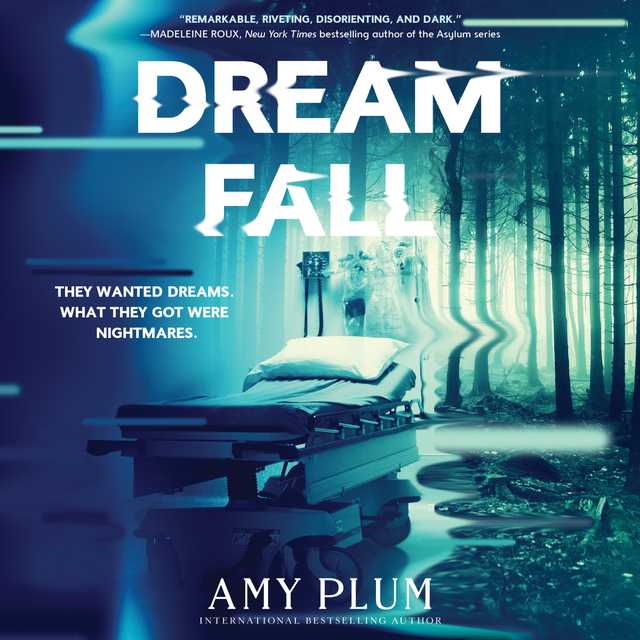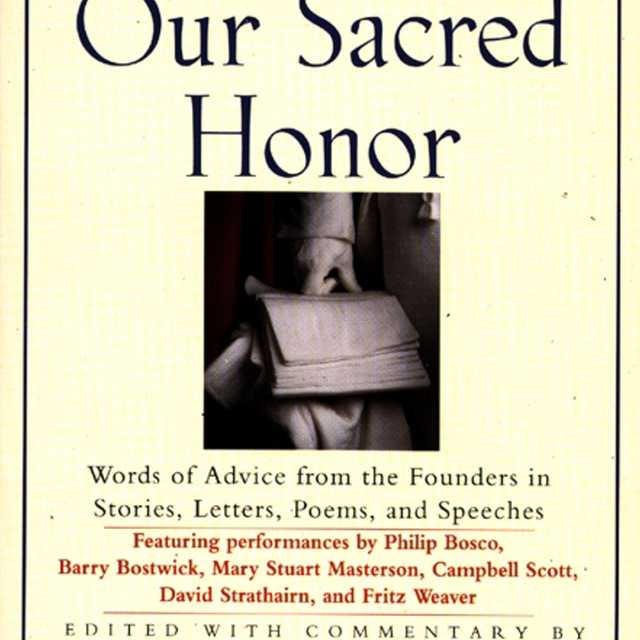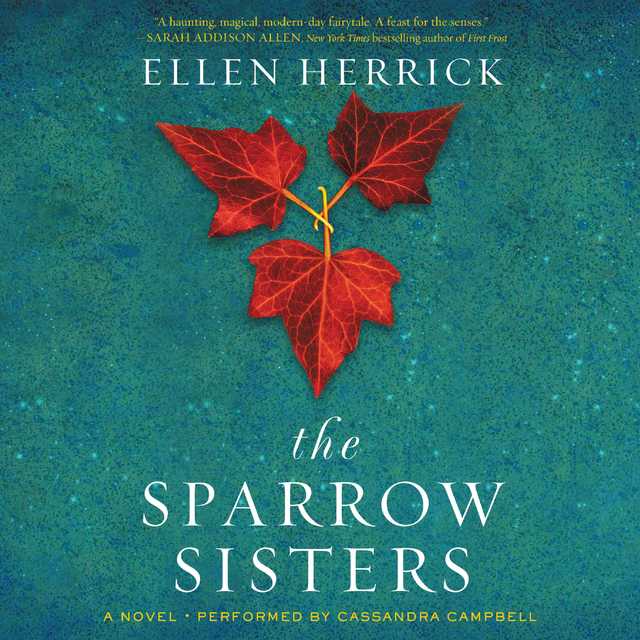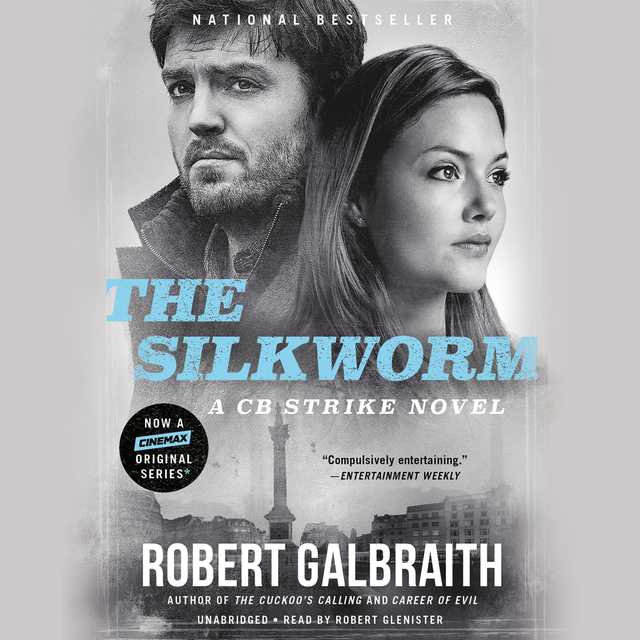Love’s Labour’s Lost Audiobook Summary
This new edition of Shakespeare’s Love’s Labour’s Lost presents a highly readable text of the play based on the first quarto of 1598. A thorough but concise critical commentary and a comprehensive introduction illuminate the significant elements of the play, its remarkable use of language, and its performance history.
Other Top Audiobooks
Love’s Labour’s Lost Audiobook Narrator
Ian Richardson is the narrator of Love’s Labour’s Lost audiobook that was written by William Shakespeare
Ian Richardson is a distinguished stage, film and television actor and a former member of the Royal Shakespeare Company. His film credits include M. Butterfly, Dark City, and most recently, From Hell.
About the Author(s) of Love’s Labour’s Lost
William Shakespeare is the author of Love’s Labour’s Lost
More From the Same
- Author : William Shakespeare
- Richard II
- The Taming of the Shrew
- Titus Andronicus
- Pericles
- Romeo & Juliet & Vampires
- Publisher : Caedmon
- Dubliners
- Julius Caesar
- The Two Gentlemen of Verona
- The Tempest
- Measure for Measure
Love’s Labour’s Lost Full Details
| Narrator | Ian Richardson |
| Length | 2 hours 29 minutes |
| Author | William Shakespeare |
| Publisher | Caedmon |
| Release date | December 20, 2005 |
| ISBN | 9780060886417 |
Additional info
The publisher of the Love’s Labour’s Lost is Caedmon. The imprint is Caedmon. It is supplied by Caedmon. The ISBN-13 is 9780060886417.
Global Availability
This book is only available in the United States.
Goodreads Reviews
Bill
February 17, 2020
It could be argued that one of the themes of Shakespeare's plays is the glories and failures of language itself. If so, it is truer of Love's Labor's Lost than of any other play in the canon. The courtiers, both in their sparring and wooing (and it is often difficult to tell which is which) engage in so much wordplay that they confuse each other and themselves. The comic characters also engage in continual wordplay, each specific to his stock type: fustian braggadocio, pedantic latinate quibbling, malapropism, etc. Excess of language piles upon excess of language, obscuring the genuine romantic interest these young people have in each other, until plain-spoken death--in this case, a courtier in a black suit--enters and interrupts their idle chatter, bringing the play to an abrupt conclusion. And, as Hamlet would say, "The rest is silence."
Ahmad
August 02, 2020
Love's Labour's Lost, William Shakespeare Love's Labour's Lost is one of William Shakespeare's early comedies, believed to have been written in the mid-1590's for a performance at the Inns of Court before Queen Elizabeth I. It follows the King of Navarre and his three companions as they attempt to swear off the company of women for three years in order to focus on study and fasting. Their subsequent infatuation with the Princess of France and her ladies makes them forsworn. In an nontraditional ending for a comedy, the play closes with the death of the Princess's father, and all weddings are delayed for a year. The play draws on themes of masculine love and desire, reckoning and rationalization, and reality versus fantasy.عنوانها: «تلاش بیهوده عشق: نمایشنامه»؛ «رنج بیهوده عشق»؛ نویسنده: ویلیام شکسپیر؛ تاریخ نخستین خوانش: سال 1977میلادیعنوان: تلاش بیهوده عشق: نمایشنامه؛ نویسنده: ویلیام شکسپیر؛ مترجم علاءالدین پازارگادی؛ تهران، بنگاه ترجمه و نشر کتاب، 1356؛ در ذو و 211ص؛ چاپ دیگر تهران، علمی فرهنگی، 1396؛ در 117ص، و هجده صفحه، شابک 9786001215476؛ موضوع نمایشنامه های کلاسیک از نویسندگان بریتانیایی - سده 16معنوان: رنج بیهوده عشق؛ نویسنده: ویلیام شکسپیر؛ مترجم: فریده مهدوی دامغانی، تهران، اهواز، 1378، در 160ص؛ شابک: 9646581137؛ نمایشنامه ی کمدی «درد بیهوده عشق (تلاش بیهوده عشق)» اثر «ویلیام شکسپیرِ» بیهمتاست، که در حدود سالهای 1590میلادی تا 1592میلادی، نگاشته شده است؛ «شکسپیر» شناسان، همگی از این نمایشنامه، به عنوان نخستین کمدی ایشان، یاد میکنند.؛ ماخذی برای این اثر شناسایی نشده، نمایش در پنج پرده تدوین شده، و دارای هفده شخصیت، و تعدادی سیاهی لشکر است.؛شخصیتهای اصلی نمایش: «فردیناند: پادشاه ناواره، که تصمیم گرفته است دربارش را به آکادمی علم و دانش تبدیل کند.»؛ «پرنسس فرانسه: دوشیزه ای با نجابت، و طبعی شاهوار، که هنگام رخداد نمایش، به عنوان سفیر ویژه ای از فرانسه مهمان شاه است.»؛ «سر ناتانائیل: کشیشی طفره رو»؛ «مرکاد: یک قاصد»؛ «بردن، دوماین و لانگاویل: دوستان و ملازمان شاه»؛ «روزالین: هرزه ای با جبین همچون مخمل، از ندیمه های پرنسس»؛ «ماریا»؛ «کاترین»؛ «بویه»؛ «کاستارد»؛ «آنتونی دال»؛ «دون داریانو دو آرمادو»؛ «ماث»؛ «ژاکوئنتا»؛ «هولوفرنس»؛«دو هنرمند»، «نجیب زادگان دربار»، «یک جنگلبان»، و«پیشکاران».؛ مکان رخدادهای نمایشنامه: یک سرزمین پادشاهی کهن در «شمال اسپانیا»، و «جنوب فرانسه»، به نام: «ناواره» است.؛ «فردیناند پادشاه ناواره» ناگهان اراده کرده است، که به جای تفریحات معمولی و همیشگی درباری، کاخ خود را، به صورت آکادمی، برای کسب علم و دانش، درآورد.؛ در مجلس عیشی که در کاخ برگزار میشود، سرانجام میعاد بسته میشود، که در مدت سه سال، مردان دربار، جز مطالعه، و روزه گرفتن، و تنها سه ساعت خواب در شبانه روز، کار دیگری انجام ندهند؛ و از همه مهمتر با هیچ زنی نیز حرف نزنند...؛ تاریخ بهنگام رسانی 12/05/1399هجری خورشیدی؛ ا. شربیانی
Darwin8u
May 08, 2017
"honorificabilitudinitatibus!"- William Shakespeare, Love's Labor's LostThe plot was a bit underwhelming but the dialogue was razor sharp. Sometimes, Shakespeare's early plays just seem like discoing dervishes in a mirror-adorned room. As a reader we are amazed, dazzled, and distracted by all that is going on, by the spinning virtuosity of Shakespeare's words, by his absolute mastery of the English language, by his dash, his deft slight-of-tongues. There just doesn't seem to be ENOUGH central narrative gravity to IT to pull the reader completely through IT. LLL just seems heavy on the baroque icing and less focused on any narrative complexity. Shakespeare data dumps his genius for wit, flirtatious innuendo, and language with some fantastic lines, but wasn't flirting with a fully-developed form yet. I feel like I'm looking at early, beautiful Picasso sketches, Da Vinci cartoons, a beautiful homunculus of the future Shakespeare formed . But I want more. It really isn't you Shakespeare it is me. Still, the play is fun, a frolic, a half-jest and nudge. It is also Shakespeare playing with the comedic form. He is rejecting and twisting the form to suit his wishes. Not yet the master of the English World, he is playing the master he will soon be.I can't disagree too much with Harold Bloom: "Love's Labour's Lost is a festival of language, an exuberant fireworks display in which Shakespeare seems to seek the limits of his verbal resources and discovers that there are none." Some of my favorite quotes:― “Never durst a poet touch a pen to writeUntil his ink was tempered with love's sighs....From women's eyes this doctrine I derive:They are the ground, the books, the academes,From whence doth spring the true Promethean fire” (Act IV.3). ― “They have been at a great feast of languages, and stolen the scraps” (Act V.1) ― “O, they have lived long on the alms-basket of words. I marvel thy master hath not eaten thee for a word; for thou art not so long by the head as honorificabilitudinitatibus: thou art easier swallowed than a flap-dragon” (Act V.1).
Paul
December 03, 2022
Love is a highly complicated thing in William Shakespeare’s play Love’s Labour’s Lost. Long dismissed as a relatively lightweight comedy, Love's Labour's Lost takes many of the conventions of the romantic comedy -- a genre that was as firmly established in the theatres of Shakespeare's time as it is in the cinema of the present day -- and overturns those conventions quite ruthlessly. You'll get a laugh, most assuredly, while viewing or reading this particular Shakespeare comedy -- but in the process, you may very well find yourself reflecting on the idea that love involves both labour and loss.Shakespeare’s brilliant use of poetic language throughout Love’s Labour’s Lost somehow reminds the reader or playgoer of the contrived, artificial qualities of the play's plot. The setting for Love's Labour's Lost is the medieval kingdom of Navarre. Located in a border area between Spain and France, Navarre spent many centuries going back and forth between French and Spanish control; accordingly, it is a border region, a liminal state, within which a drama about identity can unfold. As the play opens, the King of Navarre and three of his nobles – Berowne, Dumaine, and Longaville – are contracting, at the King’s bidding, to commit themselves to a three years’ period of study and fasting, with a specific provision that they will avoid the company of women. In the process, the King comes across as rather vain and self-important, assuring his nobles that as they take on "the huge army of the world's desires" through their program of self-denial, they will achieve a form of immortality that, the King says, will "make us heirs of all eternity." Dumaine and Longaville buy into this quixotic enterprise quite readily, with Longaville declaring that "Fat paunches have lean pates." He assumes, in other words, that their regimen of self-denial will make them all smarter, with thinner stomachs complemented by more capacious intellects.Berowne, however, has his doubts. He feels that all this book-study will achieve nothing but dependence on the ideas of others: "Small have continual plodders ever won,/Save base authority from others' books." And he questions the King's facile assumption that denial of the world's pleasures will automatically bring them the joys of greater wisdom, suggesting that “all delights are vain, but that most vain/Which, with pain purchased, doth inherit pain.” Yet the King dismisses Berowne's reservations, insisting that "Berowne is like an envious sneaping frost/That bites the firstborn infants of the spring"; and Berowne ultimately keeps the spoken vow he had earlier made, by signing, as the King and the other lords have, their vows of poverty and chastity.Berowne may sign the pledge, but he's a long way from buying in to the King's ideas. He states -- in a passage that sets forth important themes of the play -- that "At Christmas I no more desire a rose/Than wish a snow in May's new-fangled shows,/But like of each thing that in season grows." In other words, it is natural to enjoy the good things of life, and unnatural to set oneself to avoiding what is good and beautiful in life. Small wonder that when he signs the pledge, Berowne assures his friends that "I am the last that will last keep his oath" -- an ambiguous double-negative promise if ever there was one.And the ink is hardly dry on the articles when the King and his lords learn that the Princess of France is arriving in Navarre, along with three of her noble ladies – Katharine, Maria, and Rosaline. And guess what? It turns out that the King loves the Princess, while each of the lords is in love with one of the ladies. O happy coincidence! Why dost thou rear thy head ere Act I is half done?The reason for the ladies' visit, it turns out, is an eminently sensible one, as the Princess is there on a diplomatic mission -- to seek the return to France of the border region of Aquitaine, held by Navarre. And the longer the King tries to maintain some semblance of his pledge -- by, for instance, insisting that the ladies lodge in tents outside the palace walls -- the more illogical and small-minded his thinking seems.It is often the case, in Shakespearean comedy, that "high comedy" involving witty wordplay amongst noble characters is paired with "low comedy" that is based in physical humour and dirty talk amongst characters of lower social station. In Love's Labour's Lost, much of that low comedy comes to us courtesy of one Don Adriano de Armado, a visiting Spaniard who is referred to in the Dramatis Personae list of characters as "Armado the Braggart." Armado, with his name that recalls the Spanish Armada, is a suitable foil whose follies and self-importance would have much amused a patriotic English audience; Berowne calls Armado "a man of fire-new words," because this Spaniard's attempts to speak the elegant French of the Navarrese court regularly make him look and sound absurd. He can't even tell someone the time of day without having to dress it all up in absurd grandiloquence, as when he tells another character that they are currently in "the posteriors of this day, which the rude multitude call the afternoon."Armado also stands out as a hypocrite; he has seen to the arrest of one Costard ("the Clown or Swain," according to the list of characters), because Costard was caught with a woman named Jaquenetta (called "the Wench" in the list); with characteristic verbosity, Armado declares that Costard was arrested in the company of "a child of our grandmother Eve, a female; or, for thy more sweet understanding, a woman". Yet Armado, who arrested Costard for being with Jaquenetta, himself desires Jaquenetta, stating that "Love is a familiar; love is a devil. There is no evil angel but love", and he even plans to write love poetry to her: "I am for whole volumes in folio." Costard, for his part, is an example of the wise fool so familiar to readers of Shakespeare's work; he takes all things in stride, with an attitude of "sit thee down, sorrow."As for the four noble men, it does not take long for their abrogation of love to go by the boards. Dumaine, pining away with love for Katharine, bemoans how "On a day -- alack the day! -- /Love, whose month is ever May,/Spied a blossom passing fair,/Playing in the wanton air" -- a statement that emphasizes both love's status as part of nature and its connection with elements of the random. Even Berowne, who claims to live "For wisdom's sake, a word that all men love", finds himself frustratedly denouncing Cupid, the Roman god of love: "This wimpled, whining, purblind, wayward boy,/This Signior Junior, giant dwarf, Dan Cupid." Cupid may be a baby-sized god, as he was conventionally depicted in Renaissance art, but the mighty always fall before his arrows of love.By Act IV, scene 3, the noblemen, including the King, are desperately looking for a way out of their no-women vows. Perhaps it should be no surprise that they look to the cerebral Berowne for a legalistic technicality that they can invoke. Berowne is only too happy to invoke the overwhelming power of love, and to suggest that, in effect, it is simply good policy to ally oneself with this force whose power cannot be denied or overcome:But love, first learned in the eyes,Lives not alone immured in the brain....For valour, is not love a Hercules,Still climbing trees in the Hesperides?Subtle as Sphinx, as sweet and musicalAs bright Apollo's lute strung with his hair....As in many of his other comedies, Shakespeare has great fun lampooning the pretensions of the would-be learned. Holofernes the schoolmaster (aptly called "the Pedant" in the List of Characters) tosses off bits and pieces of Latin and Greek in a futile effort to sound cultured, while Nathaniel the curate shamelessly flatters Holofernes for doing so. When the two speak with Armado, and the three try to "out-culture" each other, Armado's page Mote aptly remarks that "They have been at a great feast of languages and stolen the scraps." And when Holofernes, Nathaniel, and Armado try to put on a play for the nobles, the results don't go well: the Princess says of Armado's artificial speechifying that "He speaks not like a man of God's making", and Costard dismisses Nathaniel's unsuccessful attempts to portray Alexander the Great by saying that Nathaniel is "a foolish mild man, an honest man, look you, and soon dashed. He is a marvelous good neighbour, faith, and a very good bowler." Talk about damning with faint praise! Reading Love’s Labour’s Lost in the context of Shakespeare’s entire oeuvre, I find myself thinking that Berowne, a lord who is exceptionally fond of repartee, may be a stand-in for Shakespeare himself. Much of this play is taken up with contests of wordplay – between Berowne and his lady-love Rosaline, between Berowne and the ladies’ attendant Boyer, between the King of Navarre and the Princess of France, between Longaville and Maria, between Dumaine and Katharine. One is reminded here of how much theatre audiences in late 16th-century England enjoyed seeing and hearing verbal jousting between and among the characters in a drama, just as hip-hop audiences today enjoy hearing a good freestyle rap battle. If, as some scholars speculate, this is an early Shakespearean comedy, written to order for a performance at the court of Queen Elizabeth I, the prevalence of bantering in Love’s Labour’s Lost may be well explained. Imagine a noble audience half-listening to Shakespeare’s play, laughing at the puns and finding themselves to be terribly clever for understanding all the classical allusions and whatnot.Shakespeare was good at that sort of wordplay, no question; and yet at the same time, I can’t help wondering if he sometimes found it tiresome, and felt obligated to “pun up” his plays to please his audience, even if he himself may have wanted to focus more directly on character delineation or plot development. Even in the face of all those audience demands, Shakespeare manages to transcend genre norms and conventions and tell a story that is rich in insight regarding human character. I liked, for example, how Berowne -- deeply in love with Rosaline, and finally willing to admit it openly -- is still sufficiently filled with intellectual pride that he insists to Rosaline that he cannot woo her with "Taffeta phrases, silken terms precise,/Three-piled hyperboles, spruce affectation..." Rosaline, in reply, points out that Berowne has made poor use of his considerable intellectual gifts, describing him as “a man replete with mocks,/Full of comparisons and wounding flouts,/Which you on all estates will execute/That lie within the mercy of your wit.” And Rosaline tempers this criticism with a gentle suggestion that there might be more worthy ways in which Berowne could deploy the power of his wit -- to heal, rather than to hurt.Boyer, observing how the women invariably get the better of the men in the play’s various verbal battles, states that "The tongues of mocking wenches are as keen/As is the razor's edge invisible"; but there's more going on here than just razor-sharp wordplay. Shakespeare knew what Love's Labour's Lost, under its deceptively comedic facade, presents in a sober manner: the fact that women throughout history, for a variety of reasons, have always had to take matters of courtship more seriously than men.The play’s title deserves some attention. Love’s Labour’s Lost. Love’s labour is lost. The reason for the title may become most apparent toward the play’s end – for if the reader is expecting Act V, scene ii, to end with a quadruple wedding of all those love-struck lords and ladies, in the manner of some other Shakespearean comedies, he or she is likely to be disappointed. The play concludes on a note of hope for, as opposed to a promise of, future happiness.Love’s Labour’s Lost is also distinguished as being the basis of one of the more unusual of Kenneth Branagh’s film adaptations of Shakespeare plays. Branagh’s film, released in 2000, dispenses with much of the wordplay, sets the story in September 1939, as the Second World War is beginning, and fills the soundtrack with songs from Broadway musicals of the period. Looking at all of these adaptational choices, I wonder whether perhaps Branagh found his Shakespearean source material somewhat problematic this time. Branagh was no doubt right in choosing to dispense with some of those pages and pages of badinage among the characters; but now the King of Navarre is leading his nobles not only to abjure the company of women, but also to sit out history's bloodiest and most hideous war! The King's behaviour seems even worse under those circumstances. Branagh applies the World War II context more and more directly as the film goes on, with striking consequences for a number of the characters; and while I'm still not quite sure how I feel about it all, I must say that it was a gutsy adaptational choice on Branagh's part.All of which is to say that Love’s Labour’s Lost is a challenging play. While it is not numbered among Shakespeare’s “problem comedies,” I think one can accurately say that it is a comedy that might pose some problems for the casual reader or playgoer. Yet Shakespeare takes a story that, in the hands of a lesser writer, might have been predictable and convention-bound, and infuses it with plot surprises and insights into human character, all conveyed through the most graceful and elegant of poetry.
Rachel
August 04, 2020
What a bizarre play. 3 stars for now but I have a feeling this might grow on me. (Edit: Yeah, it grew on me.)
Daniel
July 18, 2020
On a lighter note, a Shakespeare play on Love's Warriors flinging and deflecting sonnets, with calls to arms. As one character puts it, "Assist me some extemporal god of rhyme, for I am sure I shall turn sonnet.” Beware.The premise is the King of Navarre (not Henry, but a reference to the then current French King) takes three friends and founds an ascetic community dedicated entirely to knowledge. No women are allowed in to distract. Alas, a princess visits on business, attended conveniently by three ladies. Four love matches spontaneously develop and the ascetic rules the king set up get deeply tried.Love's Labour's Lost has some stage trouble because of the difficulty of the language. But it works wonderfully on the page and probably also on the stage when done well. Essentially there are three short clever but lingually difficult acts, then an Act 4 of ridiculous love sonnets, four long ones. But these sonnets are surficial and their silliness is the point. The last act, Shakespeare's longest, drops everything, plot and language, down to an easier level, includes an entire play within a play who purpose is to mock to actors. It offers a conclusion that roughly, and appropriately, shows all was for naught, hence the title. Thoroughly enjoyable and recommended with a touch of caution. Not everyone in the group I read with liked it.-----------------------------------------------36. Love's Labor's Lost by William Shakespeareeditors John Arthos & series editor Sylvan BarnettEssays afterward Walter Pater, Northrop Frye (“The Argument of Comedy”), Richard David, Robert Shoreoriginally performed: c1595format: 176-page Signet Classic paperbackacquired: Mayread: May 31 – July 3time reading: 11 hr 32 min, 3.9 min/pagerating: 5locations: Navarre, Spainabout the author April 23, 1564 – April 23, 1616
Jim
January 28, 2021
One of Shakespeare's most difficult plays, in that it is rife with archaic language and is virtually plotless, Love's Labour's Lost nonetheless is the work of a master of poetic language. H.B. Charlton analyzes the play and breaks down its arcane and obsolete vocabulary in a way that makes the play easily understood and read by anyone willing to put thought and time into it. It is, for me, one of Shakespeare's lesser comedies, but a worthwhile one for anyone wishing to know and understand the world's greatest writer.
Jenny
December 23, 2021
"Our wooing doth not end like an old play: Jack hath not Jill. These ladies' courtesy Might well have made our sport a comedy."I love Shakespeare's tongue-in-cheek, metafictional dialogue here. As the title says, love's labour is lost in this play--the men do all this work, and it might not even pay off. I've been watching Seinfeld on Netflix. I've seen some episodes of the show before, but I've never watched the show as a diehard fan. Well, I am a diehard fan now, and reading this play reminded me of watching an episode of Seinfeld, where one character suggests something outlandish, and the other characters, instead of saying, "That's outlandish!", actually go along with it. Why not, right? What I love most about this play is that the women are in control. They're wittier than the men. In all their verbal spars, the women always win and tease the men for it. Now, I know that back in Shakespeare's time, men played women on stage, but that doesn't change the fact that the female characters actually have the power in this play. They are smarter, funnier, and more noble than the men. In fact, they do something at the end that many modern women would benefit from trying out: they tell the men that they can't be together unless the men spend one year doing something noble and good, chosen by the women, such as spending a year in a monastery or spending the year making sick people in hospitals laugh. If not, it's over. If the men do it, maybe the women will want to be with them. This play is such a great twist on the traditional comedy, and I absolutely love it.
Cindy
January 07, 2021
This is one of my favorite plays. I think of it as Shakespeare making fun of the educated class. In fact, I think this is Shakespeare using his massive imitation skills to make fun of them. Very fun play. Lots of word play.2017 Update: Listened to Arkangel Audio and while the production was wonderful and the voices talented, it was confusing to keep up with 4 couples of roughly the same age with just voices. Better to have the book on hand when doing this one in audio.2021 Update: Loved this even more this time. This would be one of those plays to study hard to get all the jokes. I read the Yale Shakespeare edition and the notes were very helpful. I also watched the 1985 BBC Shakespeare production and it was very, very well done. Berowne is play beautifully by Mike Gwilym and Rosaline by the sweet Jenny Agutter from Call the Midwife. I have watched the Branagh movie several times in the past and while parts of it are incredible some of the accents are off-putting along with one very weird dance scene.
Tommi
January 13, 2023
Fifth read: January 2023Close-read & annotated again.Fourth read:: December 2019Close-read & annotated.Third read: October 2019I’m starting to think this is actually one of Shakespeare’s best comedies, contrary to what I appear to have said in January.Second read: January 2019Like most of Shakespeare’s comedies, this has to be seen onstage to be fully appreciated I think. But reading it seems just as mandatory – LLL is so laden with wordplay that it’s often hard to follow without any prior knowledge of the text (it’s hard to appreciate lines like “Light, seeking light, doth light of light beguile” if there’s no time to reflect). It’s certainly not one of Shakespeare’s best comedies, but I think the premise of men secluding themselves from women and nature by forming a homosocial, exclusionary space is increasingly relevant in an age where things like the “red pill movement” flourish among males.First read: January 2017
T.R.
May 16, 2022
Absolutely brilliant dialogue. Some of the man's best. The story itself is fun enough, but it's not an epic saga or anything. Overall, great stuff.
Frequently asked questions
Listening to audiobooks not only easy, it is also very convenient. You can listen to audiobooks on almost every device. From your laptop to your smart phone or even a smart speaker like Apple HomePod or even Alexa. Here’s how you can get started listening to audiobooks.
- 1. Download your favorite audiobook app such as Speechify.
- 2. Sign up for an account.
- 3. Browse the library for the best audiobooks and select the first one for free
- 4. Download the audiobook file to your device
- 5. Open the Speechify audiobook app and select the audiobook you want to listen to.
- 6. Adjust the playback speed and other settings to your preference.
- 7. Press play and enjoy!
While you can listen to the bestsellers on almost any device, and preferences may vary, generally smart phones are offer the most convenience factor. You could be working out, grocery shopping, or even watching your dog in the dog park on a Saturday morning.
However, most audiobook apps work across multiple devices so you can pick up that riveting new Stephen King book you started at the dog park, back on your laptop when you get back home.
Speechify is one of the best apps for audiobooks. The pricing structure is the most competitive in the market and the app is easy to use. It features the best sellers and award winning authors. Listen to your favorite books or discover new ones and listen to real voice actors read to you. Getting started is easy, the first book is free.
Research showcasing the brain health benefits of reading on a regular basis is wide-ranging and undeniable. However, research comparing the benefits of reading vs listening is much more sparse. According to professor of psychology and author Dr. Kristen Willeumier, though, there is good reason to believe that the reading experience provided by audiobooks offers many of the same brain benefits as reading a physical book.
Audiobooks are recordings of books that are read aloud by a professional voice actor. The recordings are typically available for purchase and download in digital formats such as MP3, WMA, or AAC. They can also be streamed from online services like Speechify, Audible, AppleBooks, or Spotify.
You simply download the app onto your smart phone, create your account, and in Speechify, you can choose your first book, from our vast library of best-sellers and classics, to read for free.
Audiobooks, like real books can add up over time. Here’s where you can listen to audiobooks for free. Speechify let’s you read your first best seller for free. Apart from that, we have a vast selection of free audiobooks that you can enjoy. Get the same rich experience no matter if the book was free or not.
It depends. Yes, there are free audiobooks and paid audiobooks. Speechify offers a blend of both!
It varies. The easiest way depends on a few things. The app and service you use, which device, and platform. Speechify is the easiest way to listen to audiobooks. Downloading the app is quick. It is not a large app and does not eat up space on your iPhone or Android device.
Listening to audiobooks on your smart phone, with Speechify, is the easiest way to listen to audiobooks.






























